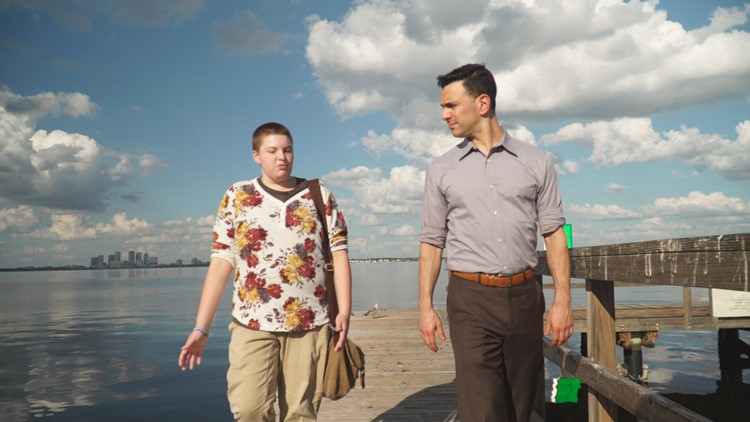TAMPA BAY, Florida – Seventeen people died on February 14th, 2018, at Marjory Stoneman Douglas High School in Parkland, Florida. The shocking shooting prompted lawmakers to pass a $400 million school safety bill.
But the bill focused mostly on securing schools and hiring security guards – not mental health, which was not one of the root causes of the Parkland shooting, but also of the 93 suicides last year in Florida for youths 18 and under.
10Investigates checked in on Florida schools nine months after Parkland, and found the state is improving – but not nearly enough – on the mental health front. The following six stories explain how Florida is failing.
According to federal reports, Florida had more than 400 students for every one counselor. And nearly every single district fell short of the American School Counselor Association’s recommendation of no more than 250 students per mental health professional.
Making matters worse, counselors typically have non-counseling duties piled on their plates.
The only Tampa Bay-area schools that meet national guidelines are Hillsborough and Pinellas. But both districts – like most others in the state – pile non-mental health duties onto counselors’ plates, stretching them thinner than recommended. That reduces accessibility for students struggling with invisible challenges, as well as adults’ ability to spot them.
Hillsborough Superintendent Jeff Eakins said the state prioritized school security, which got a $261 million influx this past spring, over the “root cause” of school shootings: mental health, which only received $75 million in the Marjory Stoneman Douglas High School Safety Act.
"We probably wouldn't have to invest so much money in the safety side if we took care of the root cause,” Eakins said. “We can tackle the root cause through mental health counseling. We know that ultimately we will have a safer campus for everyone.”
Victor Kimball, 19, can attest to how helpful a mental health professional can be in school, as well as how dangerous it is for kids who cannot get the help they need from one. As a transgender teen, he’s been battling issues such as depression and cutting for seven years.
He said he couldn’t get help in middle school; his mood, relationships, and grades all took turns for the worse.
In high school, he made several suicide attempts.
“In that moment,” Kimball said of his suicide attempts, “you don't care what happens. You just have too much going on and you can't deal with it. I just ended up pretty alone and not able to process a lot of what was happening to me.”
But after a psychologist at his high school reached out, Victor grabbed on and has made huge gains. He graduated from high school, got a job, and is making progress on his depression.
“We’re putting mental health counselors in all of our schools,” Governor Rick Scott said in February.
But Florida did not join 31 other states that require a mental health counselor in every high school. While the state provided about a million dollars per county to hire more specialists, many districts are still sharing counselors between schools because they cannot afford to hire more.
Meanwhile, security guards are now mandated in every Florida school. And every school district in the state appeared to have hired more security guards than mental health counselors after Parkland.
“Our state needs to do better,” said outgoing State Rep. Kathleen Peters (R., South Pasadena), who just won a seat on the Pinellas County Commission. “We know prevention works with heart disease; we know prevention works with cancer; prevention certainly will work with mental health.”
Peters, who lost her 21-year-old nephew to suicide, says the Marjory Stoneman Douglas High School Public Safety Act was a good first step. But she says the legislature and next governor have to do much more work to do on mental health.
“It's the moral thing to do to, it is the compassionate thing to do, but it certainly is the fiscally-responsible thing to do because it is draining every single level of government,” Peters said. “The number one reason healthcare costs are skyrocketing is mental health and it's because people are in the revolving door."
“Whatever you spend on it, there's a huge return on investment.”
RESOURCES
Maryville University just published a Mental Health Resources Guide addressing the most critical mental health issues families and students are facing today.
The resource guide provides links to reliable sources of support for anyone facing anxiety, depression, and many other disorders.
Maryville's resource also provides important hotlines for struggling individuals who may need immediate help. The resources you've already posted shows that the university is interested in providing resources and support for the community and that they are passionate about mental health. Kudos!
►Make it easy to keep up-to-date with more stories like this. Download the 10 News app now.
Have a news tip? Email tips@wtsp.com, visit our Facebook page or Twitter feed.



